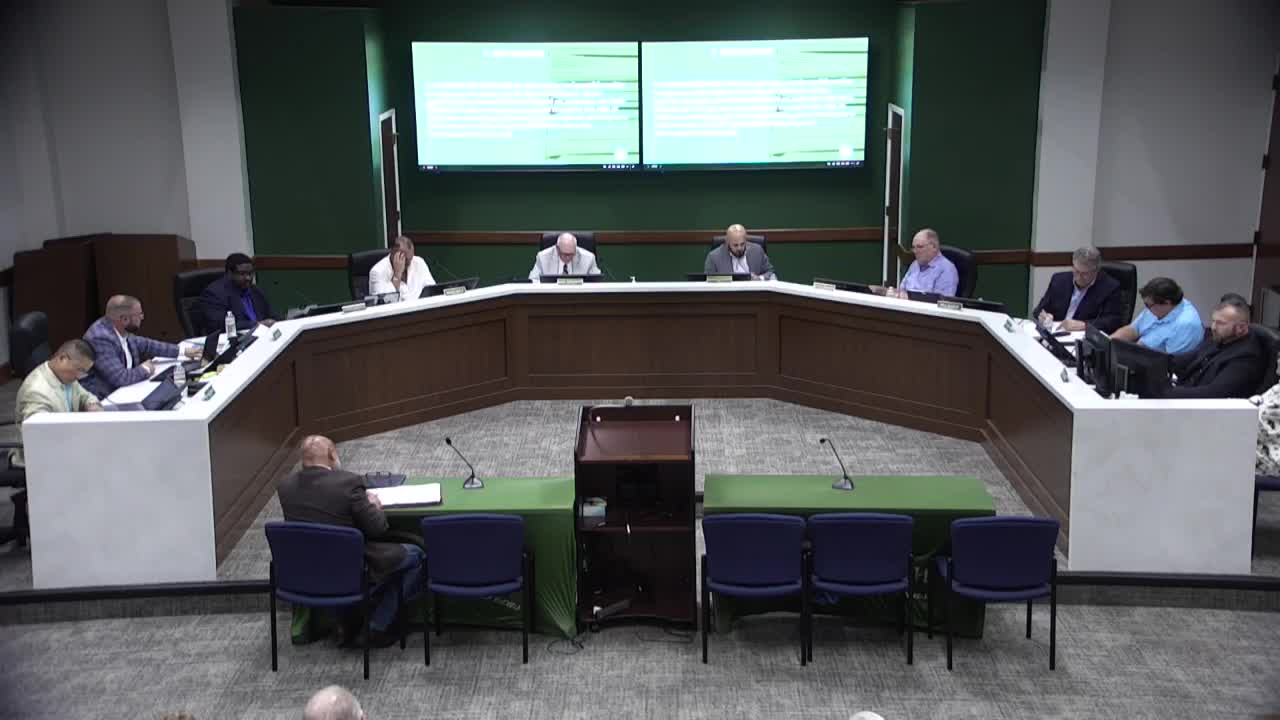Dickinson council hears pleas to preserve Railroad Depot, directs staff to estimate full repair costs
Get AI-powered insights, summaries, and transcripts
Subscribe
Summary
After extended public comment and discussion, the Dickinson City Council agreed not to close the Dickinson Railroad Depot and asked staff to produce a full-cost estimate for repairs and drainage work so council can consider funding and a sustainable operating plan.
The Dickinson City Council on Oct. 16 opened a lengthy public discussion on the future of the Dickinson Railroad Depot, heard multiple speakers urge preservation, and directed staff to prepare a cost estimate for comprehensive repairs and drainage work so the council can consider funding options.
The depot, a community museum and meeting space stewarded for decades by local volunteer groups, drew a string of public comments from longtime volunteers and nonprofit leaders who described the building’s history and urged the council not to abandon it. “I’m asking you this evening to please preserve the Railroad Museum,” said Cindy DiPalermo, recounting the Garden Club’s work to save and relocate the depot in the 1960s.
Why it matters: the depot houses local historical exhibits, serves as a visitor/welcome center and a meeting venue for nonprofits. Council members, staff and volunteers agreed on the cultural value but differed on how to fund and maintain the facility. City staff said the city must balance depot funding requests with other budget priorities and wants council guidance before authorizing major expenditures.
Council and staff discussion focused on three practical questions: (1) Is the depot structurally safe for continued public use? (2) What are the full costs to repair and protect the building (including foundation/drainage and HVAC)? (3) What operating model should the city require — continued nonprofit office space, a paid rental program, or a hybrid supported by an Economic Development Corporation (EDC) or other funding sources?
Public speakers provided historical context and volunteer commitments. Joan Malmrose, director of the Dickinson Historical Society, outlined upcoming events and asked the council to support ongoing use, while Mary Dunbaugh urged creation of a dedicated historic-preservation fund in the city budget. A Keep Dickinson Beautiful representative outlined decades of grant-funded beautification and volunteer maintenance at the depot.
Mayor Travis Magliolo and other council members repeatedly said they had no intention of shutting the depot, but emphasized fiscal constraints. City staff said routine repairs have been completed (ramps, handrails and ceiling work), but recommended a fuller engineering and remediation plan before committing larger funds. Public works input noted standing water under the building and indicated that addressing drainage and foundation issues would add cost and scope beyond cosmetic repairs.
Council members were receptive to options that would reduce the city’s recurring operating burden: proposals discussed included assigning utilities and maintenance to the EDC, requiring an administrative service or lease agreement that sets nonprofit responsibilities, and exploring revenue generation through rentals and events. Council asked staff to obtain a professional quote for comprehensive repairs (foundation, drainage, HVAC alternatives like mini-splits, and long-term exterior materials), rather than short-term patch work. A staff estimate of approximately $13,000 for recent repairs was cited during discussion as a partial figure; council asked for a full lifecycle cost estimate.
There was no vote to close, transfer, or sell the depot. Instead the council directed staff to return with a detailed estimate of repairs and recommendations for a sustainable operating model and funding sources, and to bring that information back to council for a future decision. Council members said they would consider possible EDC assistance, grant opportunities and a formal agreement to define nonprofit obligations in exchange for office space.
Volunteers and nonprofit leaders said they are willing to help with fundraising, maintenance and programming, and pressed the council for clear direction and recognition of the depot’s historic role. The meeting produced a timetable for staff follow-up rather than an immediate policy change.
Council action and next steps: staff will prepare a written cost estimate and a recommendation for whether to pursue repairs (including drainage remediation and HVAC options), potential funding sources (EDC, grants, donations), and a draft administrative/lease agreement outlining nonprofit obligations. The council will review those materials at a future meeting before approving any major spending.
